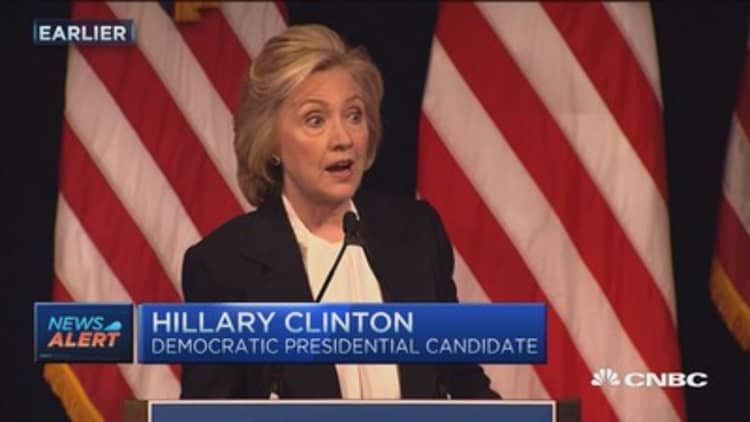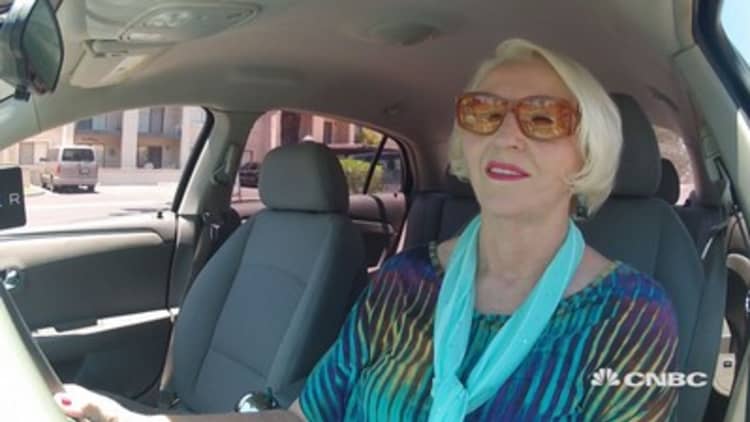
Democratic presidential front-runner Hillary Clinton laid out her economic agenda in New York City on Monday. She focused on ways to lift American workers and called out the sharing economy as a potential factor in dampened wage growth.
The sharing economy—bolstered by high-flying start-ups including Uber, Airbnb and Lyft—allows individuals to share products and services like offering homes and apartments for rent, or driving passengers to destinations. The small tasks often are brokered through mobile smartphone apps, and the platforms connect freelancers with available short-term gigs.
Amid an uneven economic recovery, many American workers are cobbling together a patchwork of jobs. But freelance freedom and flexibility don't come with traditional full-time benefits including health care or retirement savings.
More lower-paying jobs since recession
"Many Americans are making extra money renting out a spare room, designing a website ... even driving their own car. This on demand or so called 'gig' economy is creating exciting opportunities and unleashing innovation, but it's also raising hard questions about workplace protections and what a good job will look like in the future," Clinton said.
She laid out her economic plan during an address at The New School in Manhattan.
Read MoreMore retired Americans becoming Uber drivers
An estimated 53 million Americans—more than 1 in 3 workers—are freelancers, according to a 2014 report by independent research firm Edelman Berland. The study was commissioned by the Freelancers Union in partnership with Elance-oDesk.
Separate data show recent lower-wage job gains outpacing higher-wage job growth, according to the National Employment Law Project.
There are now 1.2 million fewer jobs in mid- and higher-wage industries than there were prior to the Great Recession, according to NELP data. In contrast, there are 2.3 million more jobs in lower-wage sectors than before the recession.

Rise of the Uber driver
While older workers are participating in the sharing economy, the young, tech freelancer is likely to become an important symbol during the presidential election campaign.
"In 2008, it was all about 'Joe the Plumber.' In 2016, it will likely be 'Carl the Uber driver,'" said Jeremiah Owyang, analyst and founder of Silicon Valley-based Crowd Companies, which focuses on the collaborative economy.
Some workers are suing start-ups including Uber and Lyft to be classified as employees, not independent contractors.
Clinton also vowed to ensure workers are being properly paid and protected. "I'll crack down on bosses that exploit employees by misclassifying them as contractors or even steal their wages," she told the crowd.
But others argue the "gig" economy offers workers an incredible amount of flexibility.
If the jobs "meet people's needs for flexible employment and provide learning real skills and pay decent wages, then they are certainly a positive for the economy," said Paul Osterman, professor at the MIT Sloan School. If the freelance jobs "result from misclassification to avoid paying benefits or employment taxes, then they are an emerging problem and a source of worsening job quality," Osterman said in an email to CNBC.
Read MoreFreelancers eye office space


